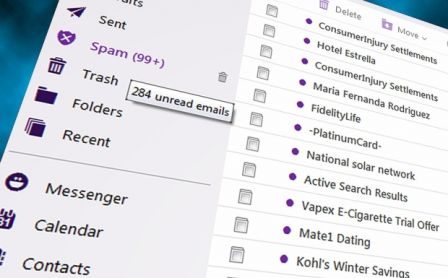Saving money these days is often far easier said than done. So when we do manage to set aside a few pennies it’s extremely important to protect ourselves against the predators who’d like nothing better than to get their sticky fingers on the contents of our piggy banks. Here are a few tips from the National Sheriff’s Association to help us safeguard against scammers and thieves.
Identity theft is such a big problem during tax season because it’s when people gather all of their sensitive information into one place, making it easiest for criminals to steal information and tax refunds.
Some ways identity theft criminals can find your personal information are:
- From their friends or acquaintances
- By posing through a phone call or an email as someone who needs your information
- By looking through your trash for personal information
- By accessing information you provide to an unsecured Internet site or via a public Wi-Fi service
To avoid giving your personal information to identity theft criminals, follow the Indiana Department of Revenue’s four identity protection tips:
- Don’t share your Social Security number (SSN) unless you have to. And never give it to a person when you did not make the initial contact.
- Don’t leave your W-2s lying around. This gives visitors going in and out of your home access to them. Instead, keep your tax documents in a safe, locked box.
- After you electronically file your tax return, save the file to a CD, USB drive, or external drive and then delete the return from your computer. Store the device in a safe, locked place. This ensures hackers can’t steal your information
- File your taxes electronically. It is significantly more secure than paper filing. Individual taxpayers may qualify to file their taxes online for free at www.freefile.dor.in.gov.
Tips to Avoid Email Scams:
Don’t believe what you see. Scammers easily duplicate a real business’ logo and/or email address.
Place your mouse over hyper-linked text and the true destination will appear.
Do not click on links or open the files in emails from people you don’t know.
Beware of pop-ups. Some pop-ups are designed to look like they’ve originated from your computer. If you see one that warns of a problem that needs to be fixed with an extreme level of urgency, it may be a scam.
Watch for poor grammar and spelling. Scam emails often are riddled with typos.
Ignore calls for immediate action. Scam emails try to get you to act before you think by creating a sense of urgency. Don’t fall for it.
*Lee Lofland and The Writers’ Police Academy are proud supporters/members of the National Sheriff’s Association.





